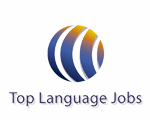Ireland is a participant in the international Training and Work Experience Scheme (TWES), which is designed to give young people the opportunity for further education and occupational training, and to enlarge their professional experience and knowledge of other countries. The other participating countries include Austria, Belgium, Canada, Denmark, France, Finland, Germany, Luxembourg, Netherlands, Norway, Spain, Sweden, Switzerland, the United Kingdom and the USA.
Applications for training are considered even if the training is available in the applicant’s home country. Training usually applies to professions or occupations in which the training leads to the acquisition of occupational skills or professional qualifications. Trainees should have relevant qualifications where necessary and must not replace any existing staff.
TWES permits are a specific type of work permit issued by employers (recruitment agencies cannot issue permits) and are not normally issued for training for a qualification which can be obtained on a full-time study basis. In these cases, you should seek permission from the Home Office to come to Ireland as a student. Permits aren’t usually issued for training or work experience in the sports and entertainment sectors.
Trainees must be aged between 18 and 54 and work experience applicants between 18 and 35, who must also be at the start of their careers. The training or work experience must be for a minimum of 30 hours a week and for a fixed length of time. Trainees occupy full-time positions with a normal salary and conditions of employment similar to those for on-the-job training in the area.
Positions are usually granted for one year and can sometimes be extended for a further six months, although in exceptional circumstances it can be extended to two years.
Work experience differs from trainee positions in that it doesn’t usually result in a formal qualification, the worker doesn’t fill a full-time position, and wages are paid in the form of pocket money or a maintenance allowance and are much less than would be paid to an ordinary employee (unless a statutory minimum wage is applicable). Applications are considered even when applicants have no previous employment related to the intended work experience, provided they have relevant qualifications and the work experience is closely related to their future career.
Although the training and work experience scheme is intended to develop applicants’ industrial and commercial experience, a secondary objective is to improve their knowledge of the English language (where applicable), although applicants must have an ‘adequate knowledge’ of English before they’re accepted.
Applicants may not transfer from training or work experience to full employment in Ireland and aren’t permitted to work under the main work permit scheme for at least two years after the completion of their training or work experience. Trainees must sign an undertaking to return to their home countries once they have completed their training or work experience and may not obtain a work permit and remain in Ireland.
Information about the TWES can be obtained from the Department of Employment/Labour (or similar) in participating countries.
On 1st January 2000, the EU launched a seven-year vocational training programme called Leonardo da Vinci. Details of Leonardo projects can be found on www.leonardo.org.uk . At the same time the EU introduced the Europass system, whereby trainees moving from one member state to another can register and record the training they have undertaken.
Science and engineering students who wish to gain experience by working in industry and commerce in Ireland during their holidays can apply to the International Association for the Exchange of Students for Technical Experience (IAESTE), which has more than 60 member countries. A good knowledge of English is essential and applicants must be enrolled at a college or university and be studying engineering, science, agriculture, architecture or a related subject. The IAESTE website is www.iaeste.org.uk .
Another organisation, AIESEC, arranges exchanges for students at more than 800 universities in over 85 countries, placing them for up to 18 months in private and public sector employment. Further information is available on the AIESEC website, www.aiesec.org .
USIT ( Union of Students International Travel) runs a Work in Ireland programme, which is open to full-time students. There are 1,000 places for students from the USA, 500 for Canadian students and a small number for students from African, South American and Caribbean countries. American students should contact USIT NOW, New York Student Centre, 895 Amsterdam Avenue, New York, NY 10025 (Tel. 0212 663 5435; ; www.usitnow.ie ) or Council Exchanges, 633 3rd Avenue, New York, NY 10017 (Tel. 0212 822 2692; ; www.ciee.org ). Canadian students should contact Travelcuts/ SWAP Ireland, Suite 100, 45 Charles Street East, Toronto, ON M4Y 1S2 (Tel. 0416 966 2887; ; www.swap.ca . Other eligible students should contact USIT in Ireland (Tel. 01-679 8833 or 01-602 1742).
The Farm Apprenticeship Board (Tel. 01-450 1980) places agricultural students on farms for between one and three years to train in farm management. Virtually all their apprentices are Irish nationals, but if you have experience in areas where there are skill shortages in Ireland (e.g. pig farming), you may be able to get on an FAB programme.


